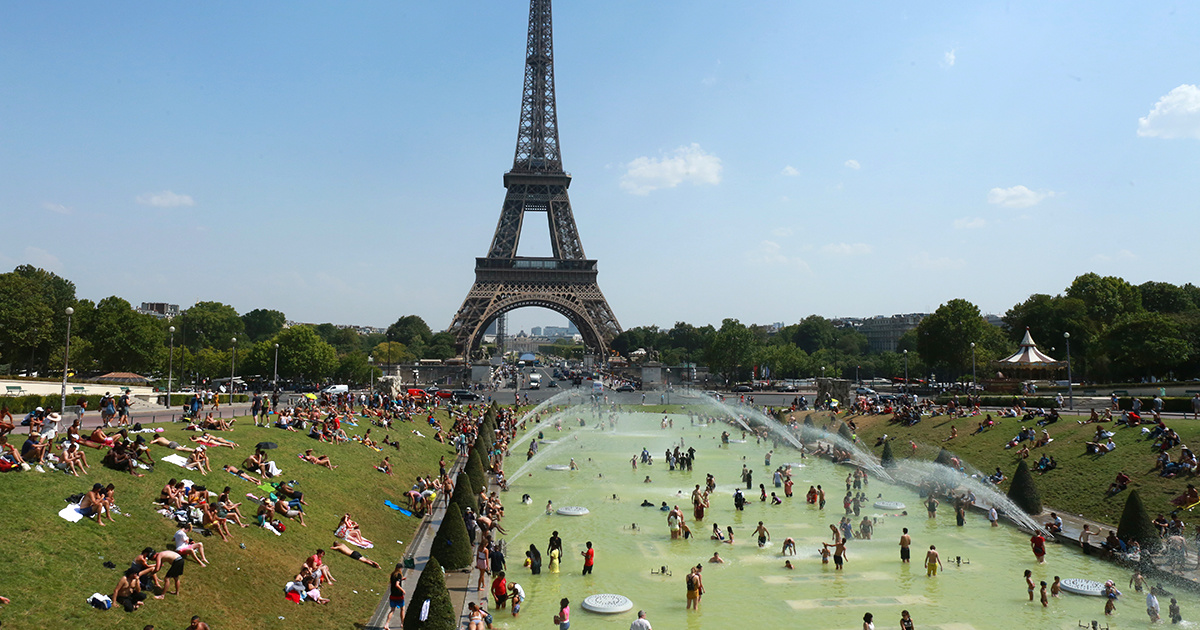MOST RECENT
POPULAR

The best of EcoWatch, right in your inbox. Sign up for our email newsletter!

People cool off in and around a large water pool at Trocadero, across the Seine from the Eiffel Tower on July 25 in Paris, France. Owen Franken / Corbis / Getty Images
Europe’s second extreme heat wave of the summer has lived up to predictions, smashing records across the continent.
Paris recorded its all-time highest temperature of 42.6 degrees Celsius, BBC News reported. Belgium, Germany, and the Netherlands all endured record highs on Wednesday only to see them broken again on Thursday, AccuWeather reported. Thursday’s all-time highs measured 41.8 for Belgium, 42.6 for Germany and 40.7 for the Netherlands, the first time the country heated to 40 degrees or more.
Related Articles From Ecowatch
- How Climate Change Is Fueling Extreme Weather - EcoWatch
- Europe Braces for Second Extreme Heat Wave This Summer ...
- Intense Heat Wave Bakes Much of the U.S. - EcoWatch
Related Content Around The Web
EcoWatch Daily Newsletter
Related Articles from EcoWatch
Recent Stories from EcoWatch

 233k
233k  41k
41k  Subscribe
Subscribe 